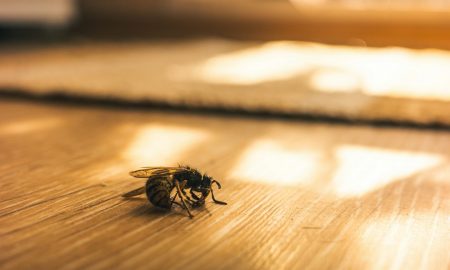I cannot call myself a New Yorker anymore. I realized this when I visited Manhattan and found myself at once disoriented with the ever-changing surroundings. I used to move as one with the herd of coffee-wielding, shoulder-shoving, eyeline-averting New Yorkers. I wore signature black and suffered heels on concrete. Noise was of no consequence as the siren calls of ambulances were mere echoes in the backdrop of city life. There was, though, a persistent thrum that prevented much sleep at night — to which I often resorted to staying up and feeding off the electricity of New York City. Artists take command of their work in such thriving metropolises — they also take antidepressants.
No more. I was a tourist. I could not give directions to one who asked nor could I remember which way was downtown. I did, however, find a bodega and knew I could at least order like a New Yorker. I went for my twenty-something appetite — though I am a forty-something with a bum gut — and ordered a greasy egg and cheese onion bagel. The white-aproned guy behind the counter carried himself like the owner. He examined me and posed questions with the calm composure of yesterday and the day before.
“How you likin’ the city?” he asked, scraping charred bacon bits and grease off the grill.
I heard his implication.
“I’m from here,” I said, a bit disheartened.
“Oh yeah? You don’t look like it.”
“I’ve been gone too long,” I said, slipping into my New York dialect with the comfort of a hand in a leather-worn softball mitt.
“You happy to be back?”
“Sure, except the city feels different.”
“It’s always different,” he said, somewhat dismissively. “We been here for twenty years, but look around, more skyscrapers, more Starbucks, more Banana Republics, but the same guy playing guitar in his underwear on that corner and the same stink of garbage and urine on the other. It’s all relative as they say.”
I laughed with him, relishing the nostalgia, wishing the city would take me back.
“It never does lose its grit.”
He slid the expertly foil-wrapped sandwich across the counter and said to close our conversation, “Hav-a good one.” He then shifted to the next customer, wiping his hand on his apron, and greeted him with a “How ya doin’?”
It was not part of the plan to live abroad. It just happened. I visited my ailing grandfather in Cairo and decided to stay. I found a job in an international American school and met my Minnesotan husband — to which my mother aptly commented: “You go to Egypt to marry an American?” I worked there long enough to discover international education was a thing, a way of life. We stayed and left, stayed and left, living and teaching in Egypt, Cyprus, the UAE, and now Germany. It was a bit of wanderlust and ambition that kept us moving, but now in Frankfurt, we find ourselves situated. When asked if we will return to America, the given response is “not after that 2016 election,” but the truth is we have changed. We no longer fit in the places we regard as home. It is like an ibis that tips its wing and suddenly unsyncs with its flock. If it doesn’t realign soon, it finds itself forever out of v-formation.
We wade through the romance of Europe for a time. As one imagines, there is the charm of outdoor seating cafes with wicker chairs and faux candlelight, the timber-framed architecture of traditional German farmhouses, and the ease of walking and walking only to find more happy dogs and spirited children than anywhere else. Eurasian red squirrels bound for boughs on oak trees, squatting for a millisecond to inspect their acorns; chestnuts occasionally fall on one’s head before getting squashed underfoot; and German families signal and cycle in a line like a rule-abiding team of smooth-feathered ducks.
What we do not expect to encounter is the utter surprise of not being able to converse in English. Surprise turns to shame for assuming all must know English — we were often spoiled this way in previous countries. We acknowledge that presumption is a quality endowed by America’s heavy-handed dose of ethnocentrism. America is the greatest country in the world — is a strange slogan touted by pretty much only Americans. We also acknowledge that we did not know we caught the center-of-the-world bug until we stepped outside America’s borders, until we stood before a barista waiting for us to collect as many German words as we could muster. His silence was not of obstinacy, but plainly the inability to speak a language he never cared to learn.
We have been here for three months. We have tried fresh Apfelsaft and a good dark Schwarzbier. We continue to eat pretzels like they might one day run out. We pick up some words and phrases, but entirely not enough to get by. My husband and I part as he speaks English all day in his international school and I wander the streets wielding Google Translate in one hand and a tote of recyclable bottles in the other. While I sit apart from locals, I can hear a bit of English in their chats, but am lost in the long trailing words in which spitting seems like a sport. I go to the market and cannot yet discern the words for Bargeld oder Kredit — as for sure the rules of grammar insist that the conjunction is in the middle, but is there a chance that it is not? I do my best to avoid speaking knowing it is an unendurable spree to leave once I begin. Sweet, old ladies at street crossings attempt to make easy das Wetter ist gut conversations, and I cannot yet say Ja, ist es. It is the first time, I realize, that I find myself quite isolated. I am quiet for hours and hours until my husband returns at the end of each day.
I think of my mother these days. My father whisked her away from an Egyptian family of eight to a highrise in Queens, New York. She was only nineteen. He sought for less bureaucracy and more opportunity — while she thought to be beside the man she loved. She had not tallied the cons before finding herself in an unfamiliar country amongst unfamiliar people. Though my mother could see herself in many diverse faces on Astoria Avenue, language was often not shared, and many other immigrants conveyed a resilience she found intimidating. While my father forged through the story of the American Dream, my mother met with anxiety and loneliness each day with a baby in tow. Her new life changed her. She was no longer the approachable, self-determined woman she was in Cairo — the one quite in tune with her design on life. She became an apparition, floating amongst Americans, hoping they could not sniff her fear.
I used to study her behavior. I was her second child and she had already lived in New York for ten years. Her teacher was the television set, specifically The Young and the Restless which reminded her of her masrahayas back home. She maneuvered just enough to get the groceries, talk limitedly with our teachers, and pay the bills, but she still funneled Arabic through me with urgency to which I resisted with my articulate English responses. America has a way of demanding individuality — otherwise, you are hazed by its contempt. Why couldn’t my mother just adapt? — was how I often thought. Little did I know that I had been indoctrinated to reject foreignness in my own family. What I should have viewed as perseverance, I continued to interpret as the inability to acclimate. Children are so certain of their perspectives — and mine was minted by American standards.
My father worked out the kinks of spoken English with the help of his profession in the IT industry and his fluency in another language: C++. He did not dwell too long on his spoken mishaps: He had to speak to earn a check. When he returned to my mother and us each day, he slipped back into the familiar, joyously sharing the quips of the day. He spoke only Arabic at home to which we responded in only English. He did not mind that so much. My mother, though, saw our refusal to speak Arabic as a harbinger of how we will one day leave her.
My mother can now speak English fluently voyaging through tough terrain — though still, her accent is her badge of otherness. I tell her she sounds glamorous, teasing her when she rides somersaults on the letter ‘r’ and suggests we go to Rrrrolfs, a small ice cream vendor in a parking lot. It is actually pronounced Ralph’s, but I prefer her adaptation. She often finds herself quibbling with hard-faced Americans looking for a bump for services rendered — whether the pool guy or the lawn guy or the gutters guy. It is possible that she, unfortunately, presumes a fight and in a self-fulfilling way gets one. Language has always been her mountain to climb and though she made it to the top, the descending pathway is just as steep.
Whether it is an invisible hand of fate or an interesting play on karma, I find myself in her once exact dilemma: I am alone. Faring as best I can with the sparseness of a new language, I change the way I conduct myself. I endure an anxiety I never felt before — the anxiety to have a conversation. The aspects of me that often draw people near are muted without the rope-hold of language. I am no longer funny and not the least bit charismatic. I am again a toddler, curiously collecting sounds, rounding my lips to blend them, and hoping that the person before me can understand or I may lose myself to a fit of frustration.
I think of the arguments I used to have with my mother and feel embarrassed by my own ignorance. We were two people together in name and blood, but separated by country and language. We were foreigners to each other, desperately trying to be heard. We did not know it then, but we were not actually fighting each other. We were contending with the trickster that is language — the way it folds nuance into words, often leading to great misunderstandings. We heard what the other did not mean to say, but the dictates of language necessitated us to be outraged, so blinded that we never thought to unpack those words to find the genuine gesture.
When we visit Egypt together, I listen to her Arabic. It is still as buoyant and musical as I remember, though I cannot tell it has changed. The taxi drivers and the waiters and her sisters can tell. She no longer sounds like an Egyptian — rather she is an Egyptian from afar. When she returns to her home, she feels a mixture of relief and alertness. She returns to the familiar and yet has become foreign. She gets teased for her new way of articulation, and cannot explain the expressions latched to the years she was gone. I asked her once what a particular Arabic phrase meant. She did not know. “That’s a new one,” she said. We shared a moment of amusement, recognizing that she may have become more American than she realized.
I race through a German phrasebook standing on the front step of a dry cleaner, plucking the exact phrases I will use before they scatter away from the fore of memory. I remember my mother charging into American spaces despite how little she spoke. She got me that Cabbage Patch Doll and my brother those baseball cards. She had to explain to retailers why she needed to return this item or that. She had to make a case for a better cut of beef at the butchers. She had to agree when the teacher asked her to speak more English at home for the sake of her kids’ speech development. She was obliged to steer through each day like a phoenix, with fiery courage anew, so that she may care for her family as best she could.
I meet the kind face of a German woman behind the register. I offer up the simple words I know. Hallo. Guten Tag. And then I wrangle with the next few phrases while she expresses dedicated appreciation for my attempt. She interjects and works with me through my request. I thank her for tolerating our exchange of ‘German-lish.’ Foreignness is now my daily fare that I must bear, but resilience not only comes with experience, it comes with the people before that modeled it so well.
Photo by Clay LeConey on Unsplash





